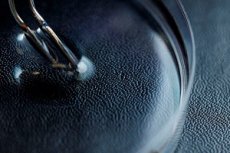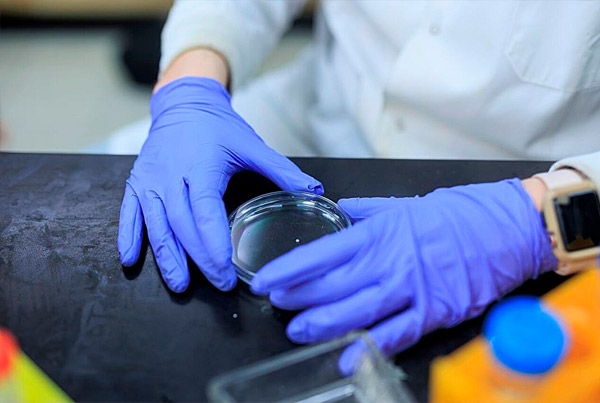
萨斯喀彻温大学 (USask) 的一名研究人员利用一种创新的新方法,从干细胞中创造出微型假器官来诊断和治疗阿尔茨海默病。
当泰勒·温泽尔博士最初提出用干细胞制造微型大脑的想法时,他并没有想到自己的创造物会取得如此大的成功。如今,温泽尔的“微型大脑”可能会彻底改变我们诊断和治疗阿尔茨海默病及其他脑部疾病的方式。
“我们做梦也没想过,我们这个疯狂的想法会成功,”他说,“这些(微型大脑)可以用血液制成诊断工具。”
温泽尔是医学院精神病学系的博士后研究员,在达雷尔·穆索博士的指导下,他提出了“迷你脑”的概念,或者更正式地说,是一种独特的脑类器官模型。
人类干细胞可以被改造成几乎任何身体细胞。利用从人体血液中提取的干细胞,温泽尔成功制造出一个微型人造器官——大小约为3毫米,视觉上就像一块被人试图抚平的口香糖。
这些“微型大脑”是通过从血液样本中培育干细胞,然后将这些干细胞转化为功能性脑细胞而产生的。使用小型合成类器官进行研究并非新概念,但温泽尔实验室开发的“微型大脑”却独一无二。正如温泽尔在《细胞神经科学前沿》杂志上发表的论文所述,他实验室中的大脑由四种不同类型的脑细胞组成,而大多数脑类器官仅由神经元组成。
在测试中,温泽尔的“迷你大脑”更准确地反映了成年人的大脑,从而可以对阿尔茨海默病等成人神经系统疾病进行更详细的研究。
而对于那些利用阿尔茨海默病患者干细胞制造的“迷你大脑”,温泽尔发现人造器官表现出阿尔茨海默病的病理——只是规模较小。
“如果干细胞可以分化成人体中的任何细胞,那么问题就变成了:‘我们能创造出类似完整器官的东西吗?’”温泽尔说。“在我们研发的过程中,我有一个疯狂的想法:如果这些真的是人类的大脑,如果一个病人患有阿尔茨海默氏症之类的疾病,而我们培育出一个‘迷你大脑’,那么从理论上讲,这个小大脑就会患上阿尔茨海默氏症。”
温泽尔指出,这项技术有可能改变阿尔茨海默病患者的医疗保健方式,尤其是在农村和偏远社区。这项开创性的研究已经获得了加拿大阿尔茨海默病协会的支持。
如果温泽尔和他的同事能够创建一种可靠的方法,仅使用少量血液样本(保质期相对较长,可以通过快递运送)来诊断和治疗阿尔茨海默氏症等神经系统疾病,而无需患者前往医院或专科诊所,那么就可以大大节省医疗资源并减轻患者的负担。
他说:“理论上,如果这个工具按照我们想象的方式工作,我们只需将拉洛什或拉龙格的血液样本送到大学,就可以通过这种方式对你进行诊断。”
“迷你大脑”概念的初步证明非常令人鼓舞——这意味着温泽尔的下一步是将测试扩展到更大的患者群体。
研究人员也对扩大迷你大脑研究的范围感兴趣。温泽尔表示,如果他们能证实迷你大脑能够准确反映其他脑部疾病或神经系统疾病,它们或许可以用来加快诊断速度或测试药物对患者的有效性。
温泽尔举例说,在萨斯喀彻温省,看精神科医生的等待时间很长。如果“迷你大脑”可以用来测试哪种抗抑郁药物对抑郁症患者最有效,就能大大缩短就诊和开处方的时间。

培养皿中的“微型大脑”——由阿尔茨海默病患者的干细胞培育而成,这些类器官表现出阿尔茨海默病的病理特征,只是规模较小。图片来源:萨斯喀彻温大学/David Stobbe。
温泽尔曾是一名高中科学老师,后来进入了研究和学术领域。他说,正是“研究的本质”——提出一个假设,并在实验中逐步验证它——让他对自己的工作感到兴奋。
最初的“迷你大脑”所取得的惊人成功是如此令人震惊,以至于温泽尔承认他仍然无法完全理解它。
“我仍然难以置信,但这样的事情真的发生了,也让我无比激动,”温泽尔说。“它给了我一些我认为会对社会产生影响、带来真正改变、带来变革的东西……它有潜力改变医学的格局。”
该研究成果在《细胞神经科学前沿》杂志上发表的一篇文章中进行了详细描述。

